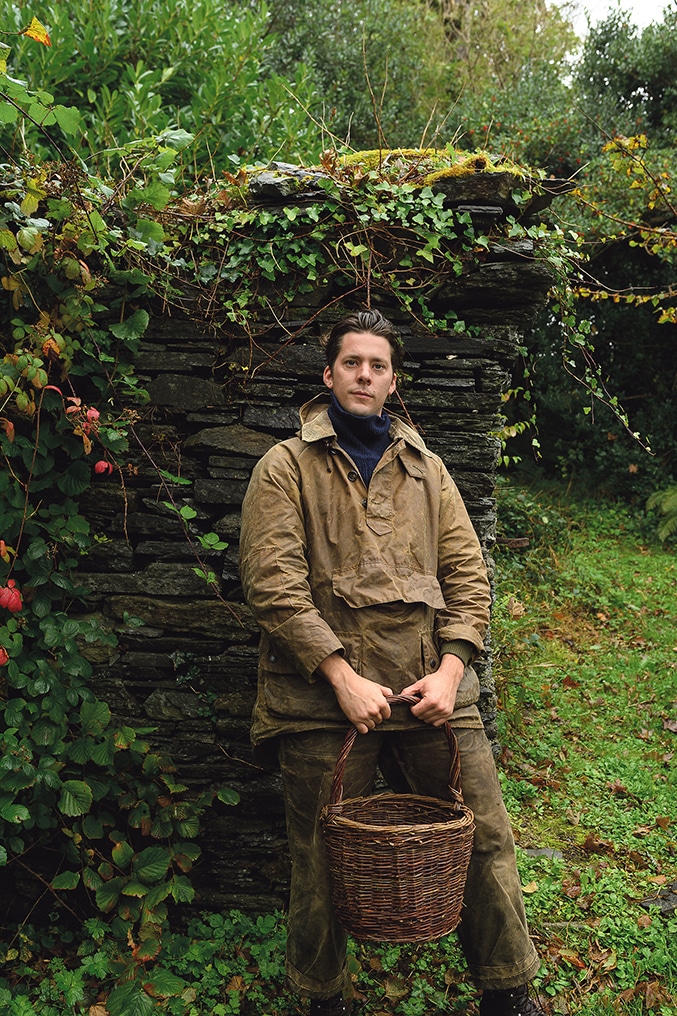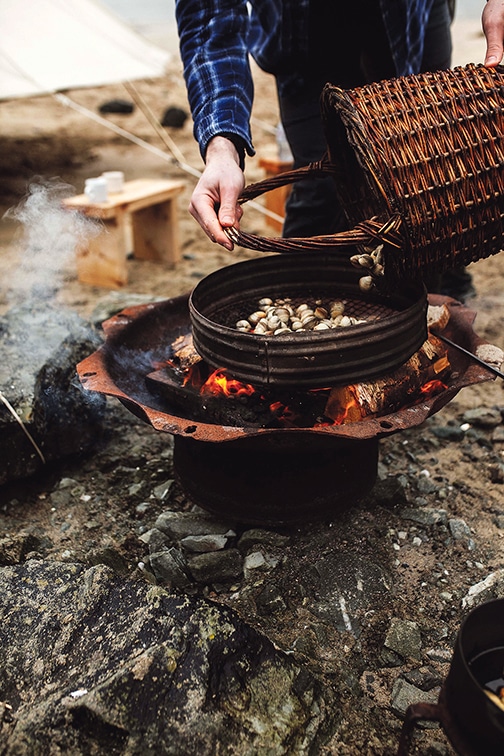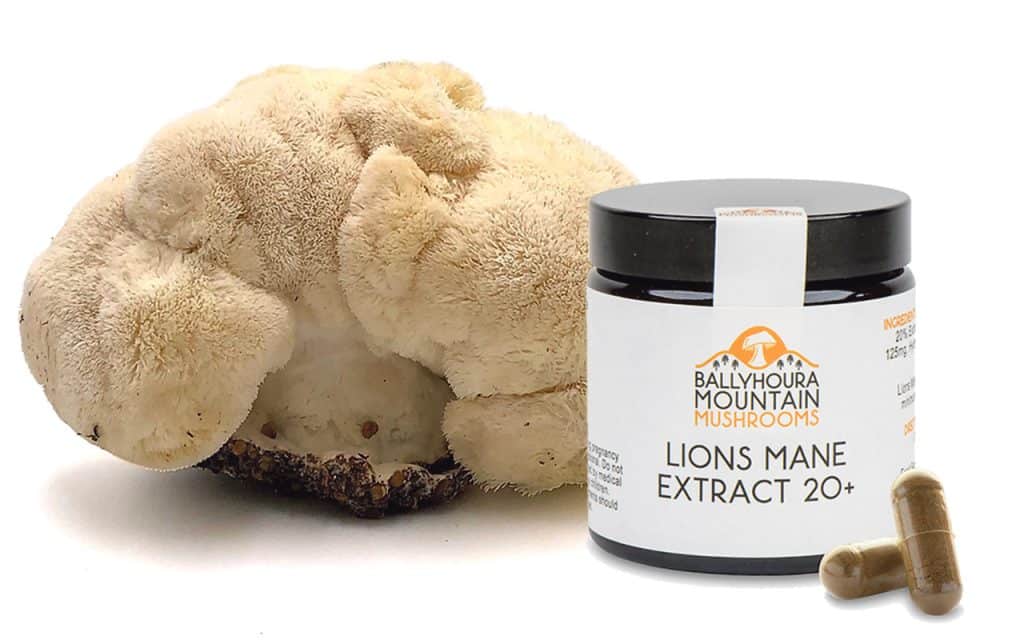

Food conservationist and educator Max Jones is on a mission to connect people to real food and the traditions behind it. Back in West Cork from the mountains of the Biellese in Italy where he led a group in a seasonal 24km trek with a herd of native cattle, Max shares with Mary O’Brien how this practice of transhumance – moving livestock from one grazing ground to another in a seasonal cycle – is one of the most powerful ways of connecting to the landscape that he has every experienced.
“What is so amazing about transhumance is that we’re eating the cheese made from the herd to make energy to take that herd from lowland to upland pastures where they will graze and then that mountain landscape will be converted into food,” he explains. “The cows are milked, and then that milk is stabilised using salt, acidity change and the removal of water, and made into cheese so that you have food to live by.”
An idealist, moving towards hopeful realist, Max believes that “if we can learn where beautifully-made food has come from and meet the people who have made it, we will be able to emotionally respond to it.
“You can’t emotionally respond to the rindless cube of ‘mild’ cheddar in a plastic pack in a shop,” he adds.
What really excites him is a cheese made with raw milk and a natural starter, like that of Carraignamuc by Lost Valley Dairy in Cork. Max played a part in its creation, using his knowledge gleaned from the mountains of the Biellese and years of working with cheese maturers Mons in London and France, in helping cheesemakers Mike Parle and Darcie Mayland through the trial and error process of creating this award-winning cheese. “All of the microbes within the cheese itself is actually what the cheese is…the goodness, identity and flavour,” he explains.
Max is finding that more and more people want access to real and honest food, which is where his business ‘Up There The Last’ comes in. He has built a space in Italy (the Rustico) and in West Cork (the Booley) offering courses and workshops on how to process food based on traditional methods, from natural cheese and butter making to private dining and preserving foods from our coastline. His aim is to bring people together remembering the old traditions, thus improving our relationship with food going forward.
“I love the idea of people eating what comes from their specific geographical context and learning how to preserve that landscape into food. By eating it, you become the place where you are. You get that sense of connection and belonging,” he says passionately.
Max’s own relationship with food began in the mountains around Biella where he spent a lot of his childhood. Born in Birmingham to an English father and Italian mother, summer holidays were spent in his mother’s homeland, where Max embraced the freedom of the mountain, roaming with the herdsmen, a piece of mouldy cheese, a salame and a hunk of bread in his pocket. “It was the food of the place,” he says.
On the return to the UK, the family car was always filled with food: “Kilo slabs of parmesan, barrels of olive oil, giant jars of anchovies, which I remember knocking me on the back of the head,” he shares.
After moving to London at the age of 19, where he studied French and Film at University, Max made a number of films about cheesemaking in France.
Whilst living as a musician, he worked in a series of delis before gaining employment as a cheesemonger at Mons at Borough Market. It was here that he really became fascinated with the life of cheese. “I realised that this cheese is somebody’s livelihood. It’s made with hands and, in some cases, those hands also milked the animal, twice a day, every day. The fascination and passion sparked by his experience here is what drew Max to West Cork.
“I came across one of Sally Barnes’ fish in London. It was probably around the size of my hand and cost nearly £100. I realised there was a similar food story going on here and started looking into it.”
Drawn to visit the legendary Sally Barnes of Woodcock Smokery in West Cork, Max ended up working with her in the smokery, where she has dedicated the past 45 years to preserving only wild fish. He went on to conceive and build ‘The Keep’, a centre of learning where Sally could pass on her knowledge.
“It’s so important to have people like Sally and to keep her knowledge alive,” says Max “She won’t work with farmed fish because she knows what the real thing is.”
While in West Cork, Max found a little shed at the top of a hill in Leap that reminded him of a booley, a little building where Irish people would make butter and cheese after moving their animals up to higher pastures. After renovating the space in the summer of 2022, Max started running his courses there last year.
“My job is to help us unlearn how we do things right now,” he shares. “We have commodified everything, become too efficient with machinery, and stripped the true value of food. I want to hear from the older folk, learn their ways of eating and experiences of food from their landscape: like hand milking and skimming the cream off the top, putting that cream aside in a wooden bucket and doing the same thing the day after and the following day, until there is enough cream to make butter.”
Max explains how through this process, because the cream hasn’t been refrigerated or pasteurised, the starter culture, or natural bacteria within the milk, starts to ferment. “The more sweet cream you feed it with, the more food it has. The cream starts to sour and thicken and becomes creme fraiche.”
He recalls opening the cupboard of one of the herders of Biella and his delight at finding the most incredible piece of creamy, golden butter inside, handshaped and stamped. “You’d possibly pay around £70 a kilo for something like that in London.”
Although his roots are scattered between the UK, Italy and here, for now Max and his wife Réidín and two-year-old daughter Beatrix live in Castletownshend in West Cork. The couple recently married in the little church in Biella, celebrating afterwards with close family and friends over a simple meal in a traditional restaurant on the mountain.
Sharing meals of ‘real’ food together is an important part of family life for the couple. When he’s not travelling for work, Max can be found spear fishing and diving or throwing out lobster pots off the coast of West Cork. He preserves deer meat and makes his own pancetta. This time of year, he’s out foraging for hogweed. “The tiny buds are delicious steamed and fried off in butter,” he shares.
He has just finished a course showing people how to find spider crabs, a delicious and sustainable meal that is underrated here in Ireland. “I’m learning so much here by speaking and listening with locals. I was fascinated to learn that people don’t eat things like spider crab and cockles here because of its association with the famine,” says Max.
“It’s exactly the same in Italy with chestnuts. You have this amazing abundant, free food known as the bread of the trees and it’s shunned because of its association with poverty.”
He is currently writing a book on the Biellese and the techniques and traditions of the mountain people and how we can apply them in modern day life.
His dream…to set up a centre around food and learning in West Cork.
If you are interested in learning more about Max’s work and going one of his courses check his instagram page for updates @uptherethelast or go to www.uptherethelast.com. You’ll also find a recipe archive of disappearing foods at www.substack.com/@uptherethelast which is run by donations, so please throw some coins into his cap!
He also runs an old-time music session at Lill McCarthy’s in Castletownshend every Wednesday from 8 till late.



